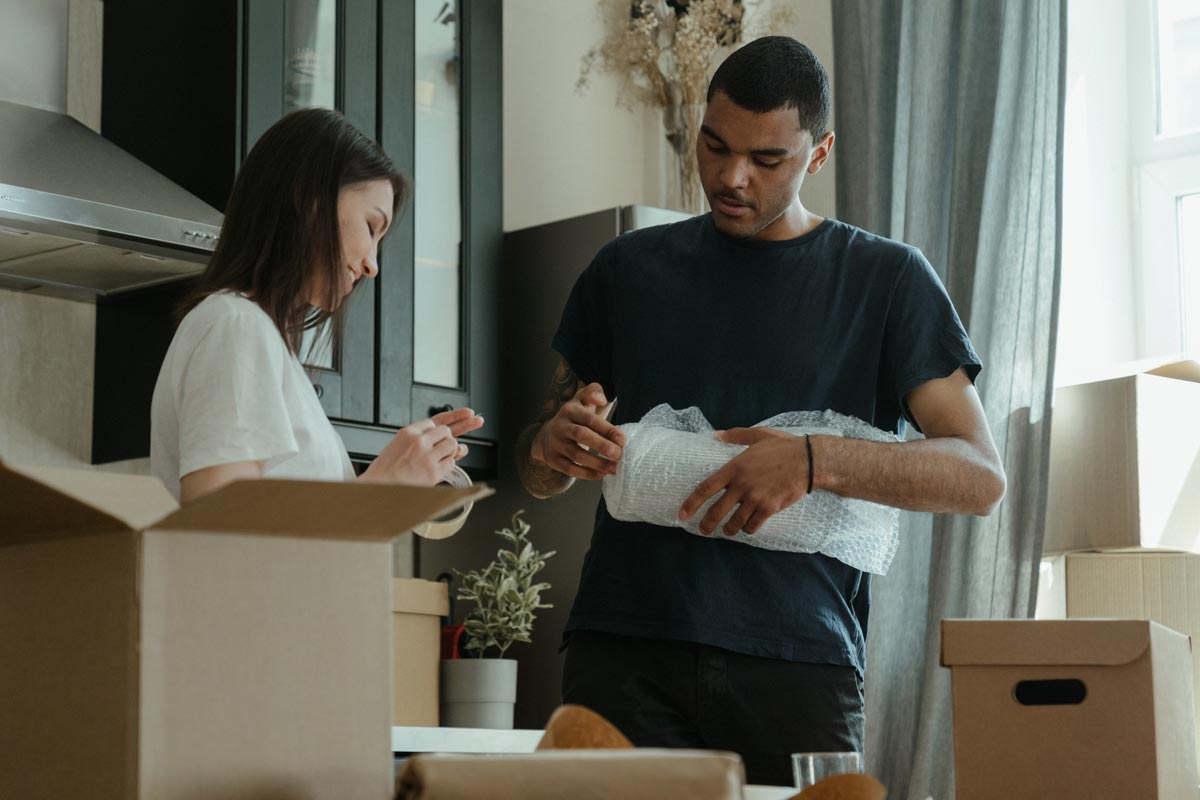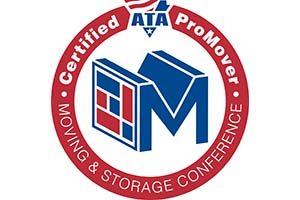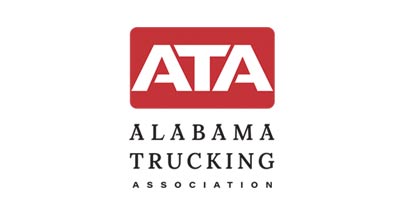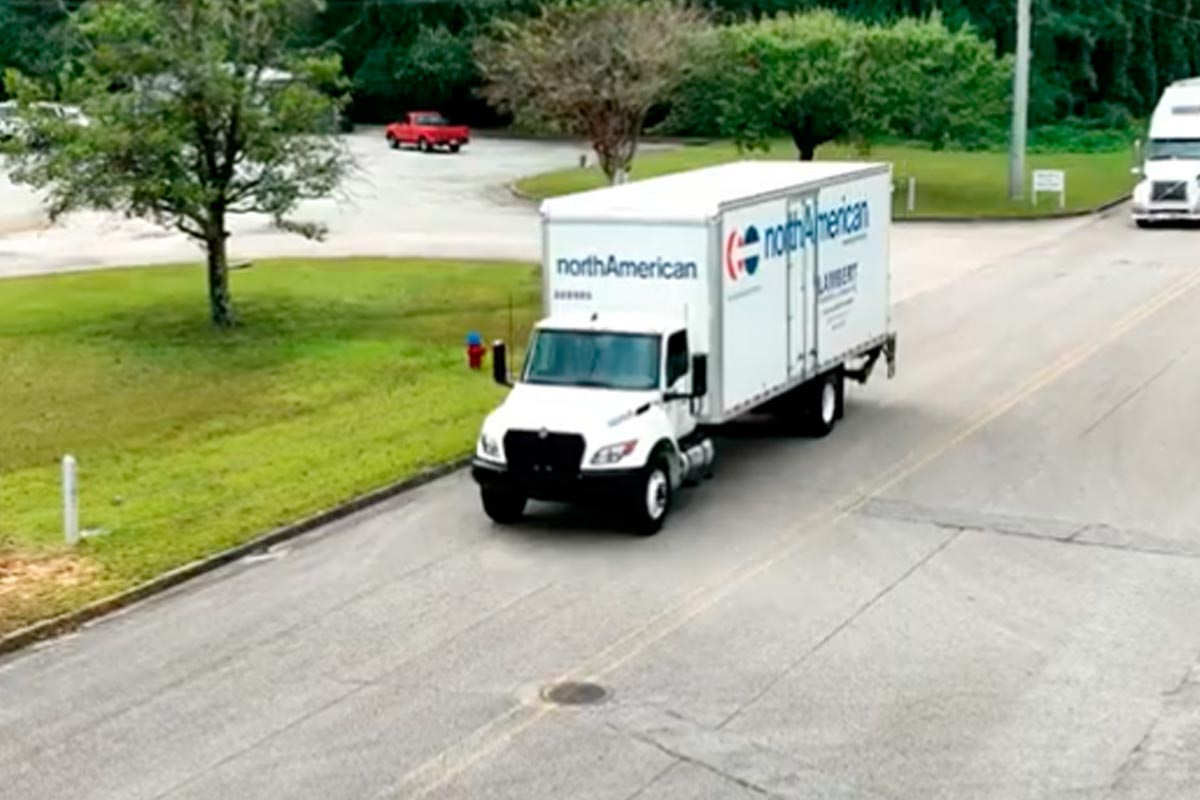Moving anywhere, even to Montgomery, is a process, and the thought and care you put into packing will pay off later. Below are 10 packing tips to keep your belongings safe, simplify the move-in process, and save money on your move.
Gather Free Packing Supplies
Even if you are using a full-service moving company like Lambert Moving Systems, you can find ways to save money, especially on items that you plan to move yourself. Begin by collecting free moving boxes and supplies. Just make sure they work with your moving company. Stores that receive frequent deliveries such as bookstores, pharmacies, groceries stores, and restaurants are great resources for boxes. Ask friends, family, and coworkers if they have any boxes, packing tape, bubble wrap, mattress bags, or other materials lying around. You will be surprised by what others have saved from their former moves.
Use What You Already Have
Scour your home for items that can double as packing materials. Blankets, linens, and towels can be used in place of bubble wrap. Use hampers, laundry baskets, dresser drawers, duffle bags, and even garbage bags to move clothes and other lightweight, non-breakable items. Hard-shell suitcases provide an extra layer of protection for breakable items, while the suitcase wheels make heavy items easier to move.
Invest in Specialty Equipment and Services
Some packing supplies and equipment are worth the investment! This is especially true for mirrors, TVs, glassware, and other fragile items. Movers sell boxes designed to preserve these items, including ones with built-in dividers for drink glasses. You can pay your moving team to pack only your most fragile items for extra assurance.
Vacuum-sealed bags will help winter gear and bedding take up less room. Also, keep a box cutter on hand to help you open boxes when it’s time to unpack.
Have a Plan for Hazardous and Perishable Items
Did you know there are some things moving companies won’t move? Common items include flammable liquids, aerosol cans, and perishable foods. Some companies refuse to move plants and pets, too.
As your moving company, you can ask us for a complete list of items we will not move. Plan to dispose of these items before moving or transport them yourself. Also, remember some items can’t be tossed out with your regular trash. Your local government, landfill, or trash company should be able to answer questions about how to dispose of hazardous materials.
Purge and Pack Storage Areas First
Moving time is a great time to purge those things that you no longer need or use. Sort through and pack items in storage areas, such as your basement, attic, or garage. The items in your closets and other storage areas may already be boxed up, which will save you some time and money.
Long-distance moving companies factor the size and weight of your belongings into their rates. Because of this, it’s worth the time spent combing through and purging rarely used items instead of packing and moving them.
Pack the Kitchen Early
Our suggestion is to pack the kitchen first! It’s one of the most difficult rooms to pack. Start with serving dishes and small appliances that don’t see daily use. Be committed to eating takeout or buying simple, microwavable meals. Pack all of your dishes and utensils except a single place setting for each family member; or better yet, purchase paper plates, disposable cups, and plastic utensils for the last weeks in your old home.
Set Aside Valuables and Essentials
If you are moving cross-country, think about what you’ll need during the trip. These items should be packed in a suitcase that will stay with you during the move. For example, one or more changes of clothes along with your prescriptions, toiletries, important documents, and any valuable or sentimental items.
You may also want to pack a box of things you’ll need as soon as you move into your new house. Label this box “open-first box” and fill it with items such as paper towels, toilet paper, cleaning supplies, paper plates, trash bags, and batteries.
Inventory and Label as You Pack
As you pack, create a moving inventory. Some people keep a spreadsheet or notebook, or you can simply take pictures of each box as you pack it. This will make it easier to file an insurance claim with your moving company if anything gets lost or broken in transit.
Further, create a system for labeling boxes so that you know which room each box belongs in and what it contains. You can use stickers or a color-code system to stay organized, or you can spell everything out on the box. It might also help to number the boxes that belong in each room. For example, if there are five living room boxes, label the first one “Living Room 1/5″ and so on.
Keep Furniture Parts and Assembly Tools Together
Some pieces of furniture, such as bookshelves and bed frames, might need to be disassembled before moving. For these items, keep track of any hardware and tools you will need to reassemble them. One option is to put screws and other small pieces into a resealable plastic bag, then attach the bag to a larger piece of the furniture with masking tape. Label everything! We have known plenty of people who “think” they will remember but they don’t!
Think Beyond Packing
When it comes to moving, weight matters! Account for the size and weight of each box. Putting heavier items, such as books and dishes, into smaller boxes will help you avoid overfilling them.
Also, think ahead to the unpacking process. Transporting your clothes in plastic bags might save you money on the front end, but wardrobe boxes will be more convenient on the back end. These boxes have built-in metal bars that allow you to keep “hanging” clothes on their hangers, making packing, and unpacking much faster.
Are you in the market for a mover in Alabama? Lambert Moving Systems is one of the top companies for moving in Alabama. We’ve been around for 90 years. Find your location below to get in touch now!
Photo: Rosa Park and Civil Right Memorial (Public Domain) en.wikipedia to Commons.








